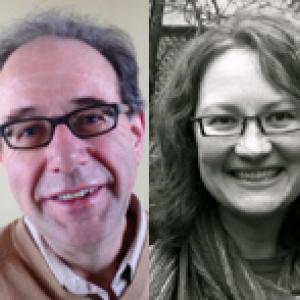Towards an Empirically-Grounded Theory of Action for Improving the Quality of Subject Matter Teaching at Scale
Research on the teaching and learning of both mathematics and science has made significant progress in recent years. However, this work has had only limited impact on instruction in most US classrooms. For the past four years, we have collaborated with mathematics teachers, school leaders, and district leaders in four large urban school districts to investigate what it takes to support improvement in the quality of instruction at scale. As part of this collaboration, we made recommendations based on the data we collect each year to leaders in each district about how they might revise their policies or strategies for instructional improvement to make them more effective.
In the course of this work, it has become apparent that research can currently provide only limited guidance to school and district leaders who are attempting to support mathematics teachers’ development of ambitious, inquiry-oriented instructional practices. The need for investigations that are designed to inform instructional improvement is even more urgent when the goal is to support teachers’ development of classroom practices that are equitable as well as ambitious. We present the results of our work to this point by considering key aspects of a coherent theory of action for instructional improvement at scale. These elements include: curriculum materials and instructional guidance instruments such as district-developed curriculum frameworks; pull-out teacher professional development; teacher collaborative meetings; mathematics coaches’ practices in providing job-embedded support for teachers’ learning; school leaders’ practices as instructional leaders in mathematics; and district leaders’ practices in supporting the development of school-level capacity for instructional improvement.
We conclude by discussing future work in which we are collaborating with leaders in two of the four districts to co-design and co-lead coordinated professional development for teachers, coaches, and school leaders. As we will clarify, one of the districts is adapting this work to provide professional development that is aligned across role groups and that focuses on specific high-leverage instructional practices in science as well as mathematics.
Bios:
Paul Cobb is currently professor of mathematics education at Vanderbilt University, where he holds the Peabody Chair in Teaching and Learning. He worked as a doctoral student with Les Steffe and Ernst von Glasersfeld to develop cognitive models of young children’s arithmetical learning. He subsequently collaborated with Erna Yackel, Terry Wood, and Koeno Gravemeijer to conduct a series of design experiments in elementary and middle-grades mathematics classrooms. In recent years, his research has focused explicitly on issues of equity in students’ access to significant mathematical ideas and on the challenge of supporting instructional improvement on a large scale. He received the Hans Freudenthal Medal for a cumulative research program over the prior ten years from the International Commission on Mathematics Instruction in 2005, and the Sylvia Scribner Award from the American Educational Research Association in 2010 for research that contributes to our understanding of learning and instruction. He is an elected member of the National Academy of Education and an Invited Fellow of the Center for Advanced Studies in the Behavioral Sciences.
Kara Jackson is currently an assistant professor in mathematics education at McGill University. She earned her doctorate in Education, Culture and Society with an emphasis in Mathematics Education in 2007 from the University of Pennsylvania. From 2007-2010, she was a postdoctoral research fellow at Vanderbilt University’s Peabody School of Education in the Department of Teaching and Learning. While at Vanderbilt, she worked on an NSF-funded project investigating how to support instructional improvement in middle-grades mathematics at the scale of large, urban districts; she is currently a co- principal investigator on an extension of this study. In 2010, she received a National Academy of Education/Spencer Post-Doctoral Fellowship to investigate how districts and schools (with diverse organizational constraints and resources) can configure aspects of institutional settings to support middle-grades mathematics teachers’ development of ambitious and equitable instructional practices. She has taught mathematics to students in grades 2-12 and adults. Her research interests focus on specifying forms of practice that support all learners to participate in rigorous mathematics, particularly youth who are under-served in US classrooms, and how to support teachers to develop such forms of practice.

